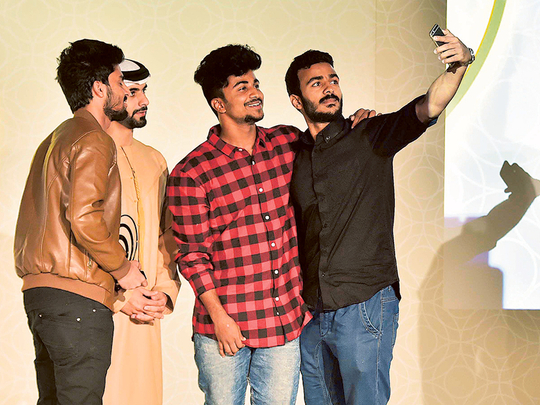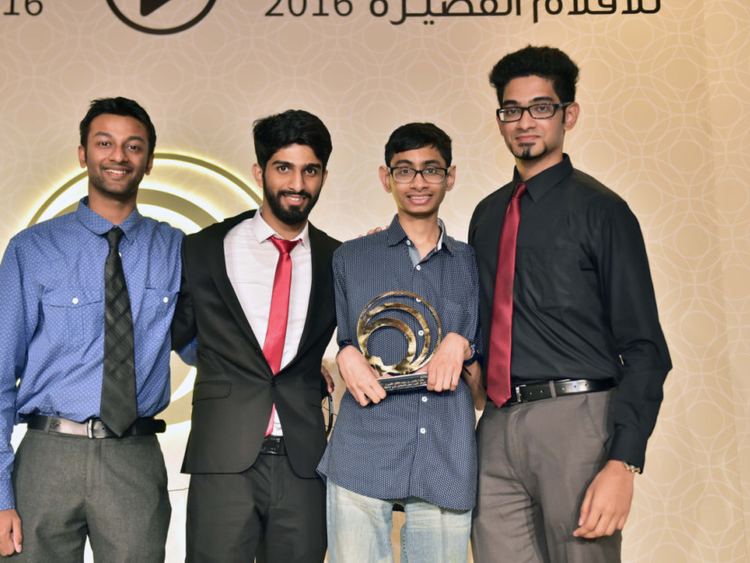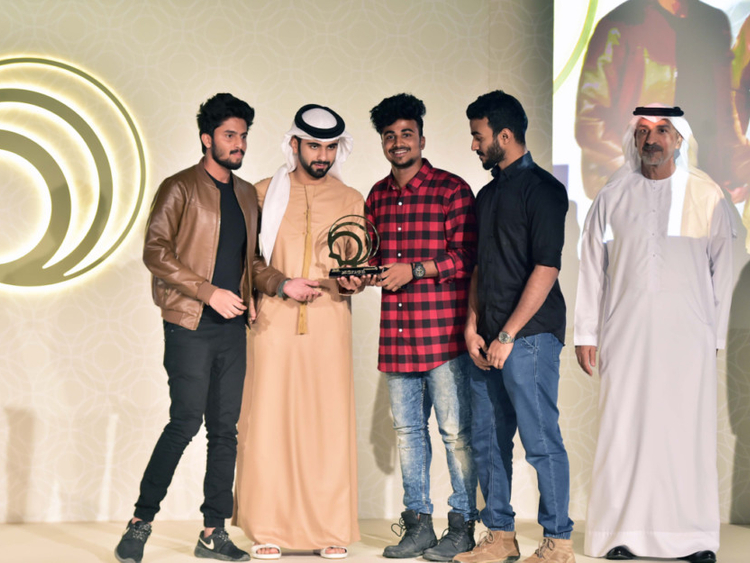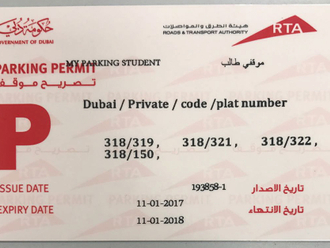
Dubai: People with disabilities, drug addicts and those with mental issues are human beings with rights too and society has a role in ensuring they have a place in it.
This was the central message of the short films that made it to the cut and won the Mansour Bin Mohammad Short Film Award for the Human Rights Short Film Competition organised by the Community Development Authority (CDA) on Tuesday night.
Shaikh Mansour Bin Mohammad Bin Rashid Al Maktoum presented the awards along with Khalid Al Kamda, CDA director-general, and Maitha Al Shamsi, CEO, Human Rights Sector at CDA.
The award aims to highlight the protection and empowerment of the most vulnerable groups in society — people with disabilities; addicts and recovering addicts; and people with mental disorders and infectious diseases.
“The subject matter for this year is a little bit sensitive but I think the participants really dealt with the telling of the stories in a very sensitive and a very touching way,” Al Shamsi told Gulf News.
The competition, which received 38 entries, was open to all youth in the UAE aged between 19 and 29.
“The youth are our partners in creating awareness about the vulnerable groups to ensure that people are aware of how important inclusion is for them, how important it is to be sensitive to them, to empathise with them and to treat them as an equal,” Al Shamsi said.
Mark Matthews Stanley, Fawas Esmail, and Varun Ashok who bagged the first prize for the people with disabilities category were over the moon on Monday night. Their short film titled Connection depicted the true-to-life story of two brothers, Mark and Josh. The five-minute film showed the point of view of both brothers, especially Josh who has autism, and how they go about life in Dubai.
“Our message to the people is try to step into their shoes and try to understand what they must be going through first rather than judging them without even knowing anything about them,” Stanley, 23, told Gulf News.
“We want these people to be treated just like us. They should be able to do anything just like what we do. They shouldn’t be looked at in a different light,” Esmail said.
University friends Mohammad Ajmal, Mohammad Feros, and Mohammad Ansar all starred in their film titled Once Upon A Time that aims to deglamorise the treatment of drug use.
The cinematic and in-your-face telling of the story of three drug dependent youths depicted their downward spiral due to drug abuse and how they were rescued by society.
“We wanted to convey to people that many of them think the people who do drugs are having a good life and feel good when they’re high. But they don’t know that these addicts are actually suffering,” Feros told Gulf News.
Ajmal said it is society’s duty to help. “When you find an addict, don’t ignore him. Help him. Help make him better. Society can make one person bad and one person good.”
Anood Abdullah Zaid and Khulood Al Rais bagged the first prize for their film The other side in the Mental Disorders and Infectious Diseases Category.
WINNERS:
People with Disabilities Category:
1st: Connection
2nd: Who’s Zaid
3rd: Aziz
Addicts, and Recovering Addicts Category
1st: Once upon a time
2nd: Fuse
3rd: Better than nothing
Mental Disorders and Infectious Diseases Category:
1st: The other side
2nd: Delusion
3rd: The Guest








